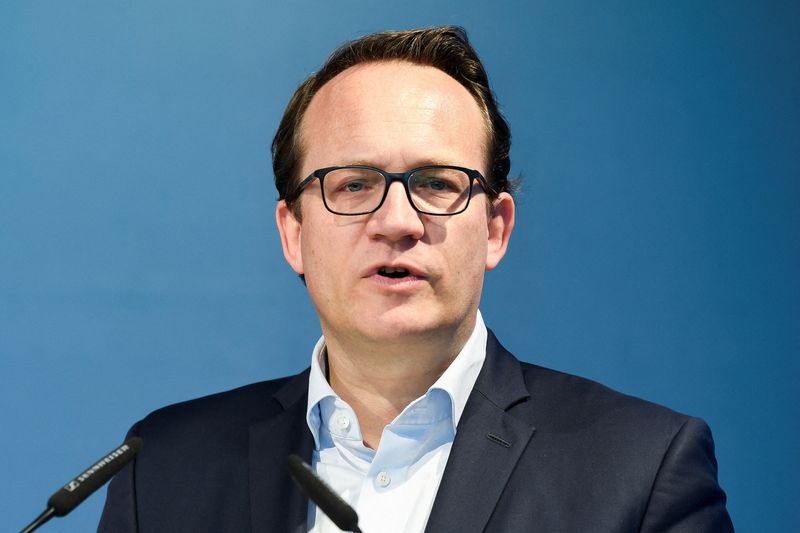FRANKFURT (Reuters) - Germany's liquefied natural gas infrastructure may end up not being fully utilised, the chief executive of the country's top utility said in an interview, but added that simply having the import capacity was key to avoid a possible fuel supply squeeze.
The comments by RWE (LON:0HA0) CEO Markus Krebber, made in a joint interview with German magazines Der Stern and Capital, came in response to the notion that Berlin may have overshot the mark with existing LNG capacity plans.
Berlin initiated the build-up of floating storage and regasification units (FSRUs) at various coastal locations in record time in response to the suspension of gas flows from Russia, its former main supplier.
Six FSRUs at four sites are due to be online by the end of 2023, five of them chartered by the government and with regasification capacity of 27 billion cubic metres (bcm) per year.
"It may be that the LNG terminals are not fully utilised. But you need them as an insurance premium," Krebber was quoted as saying.
RWE is in charge of one of the chartered FSRUs and is also a shareholder in a planned fixed LNG import terminal.
Krebber said that Russia, which fully stopped gas supplies via the Nord Stream 1 pipeline at the end of August, was still fulfilling supply obligations via the alternative Ukraine pipeline.

"If you think it will stay that way, you need fewer terminals. If you want to cover yourself, you need the infrastructure," he said, adding that Germany was not yet through an energy crisis that has gripped Europe's top economy.
Germany said on Friday that the rollout of its LNG infrastructure would exceed the 9.8 billion euros ($10.40 billion) for the 2022-2038 period approved by the Bundestag lower house of parliament.